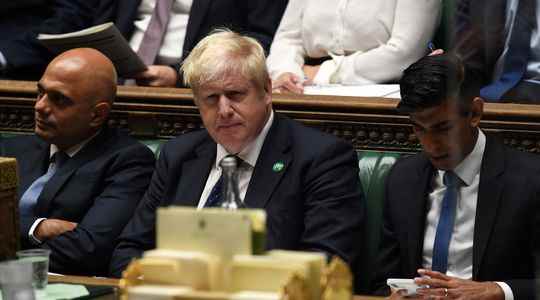Each time, it’s the same stupor. We are outraged when a Boris Johnson has the nerve not to follow the rules of our democracy. However, it was predictable that this maniacal ego listens only to his desire, that of remaining as long as possible in Downing Street, and forgets the interest of the country. Attention, if he ended up agreeing to no longer be the leader of the Tories, he still remains Prime Minister. The time has come to codify our Constitution to protect us against such individuals.
Our Constitution is like a beautiful and venerable car that we have never maintained. It is high time we took care of it by setting up specific processes and rules, in other words, safeguards. The far right and the Brexiteers have known for a long time the weaknesses of our system and have stepped into the breaches several times. For the 2016 referendum on leaving the European Union, they had clearly seen in the texts a crucial detail, namely that expatriates, in particular British, residing in Europe, could not have their say. Withdrawing the right to vote on such a vital subject from French citizens living abroad would be inconceivable in France, but in Britain the lack of clarity in our rules made this abuse of power possible. Similarly, a minimum threshold of the electorate should have been set, for example at 50%. Result, and because our rules are vague, it is 37% of the electorate who decided to leave the EU (the 52% of the votes cast representing only 37% of the total voters). For me, Brexit is an unconstitutional blow.
Why don’t we have a written Constitution? First of all, to say that our Constitution is not written is not entirely accurate. Walter Bagehot has put down to paper and cataloged many traditions and conventions in his Français Constitution of 1867. However, no legislator has codified these traditions into law. Everything is here. So we don’t have a written Constitution, in the sense that you mean it. The reasons are historical and social, and mainly due to the English class system. These are agreements between gentlemen who have the same education. Note that Boris Johnson had this education, but he is not a gentleman. Our voting system, a first-past-the-post system, also reinforces the polarization of political life with two major opposing parties. This makes public debate too often simplistic. British politicians have always known how to play these conventions to their advantage.
The Conservative Party has every interest in regaining its senses
There were attempts to codify the Constitution under Tony Blair and Gordon Brown, but these were small changes ad hoc, such as the reform of the House of Lords and the devolution of the parliaments of Scotland, Wales and Northern Ireland. I remember being invited by Prime Minister Gordon Brown to think about what a codification of our constitutional rules could be. Alas, the idea remained at the draft stage.
Today, Boris Johnson is still Prime Minister, even though he resigned as leader of the Conservatives. Apart from decency, which he seems to lack, no one can force him to leave Downing Street. Only the queen could. I doubt she does. Otherwise, a delegation from the Privacy Council [conseil privé de Sa Majesté, NDLR] asks the sovereign to order her departure from Downing Street.
I predict that the Conservative Party is going to put enough pressure on Boris Johnson to get him out. It is about their political survival and what remains of their reputation with the British. New elections would be disastrous for them. They have every interest in finding their senses. That said, we must not forget that the best of them were expelled by Boris Johnson in 2019 or left the party, disgusted by its excesses. There are very few Tories who haven’t been tarnished by their association with Johnson. Alone, among the dozen applicants presenting himself to his succession, Tom Tugendhat is a figure of competence and honesty. Let’s hope that the hundreds of thousands of members of the Conservative Party who will choose their new leader this summer, and therefore the Prime Minister, think first of all of the interests of the country when they put their ballot in the envelope.
(1) The Good State: On the Principles of Democracy (Oneworld, 2021).
